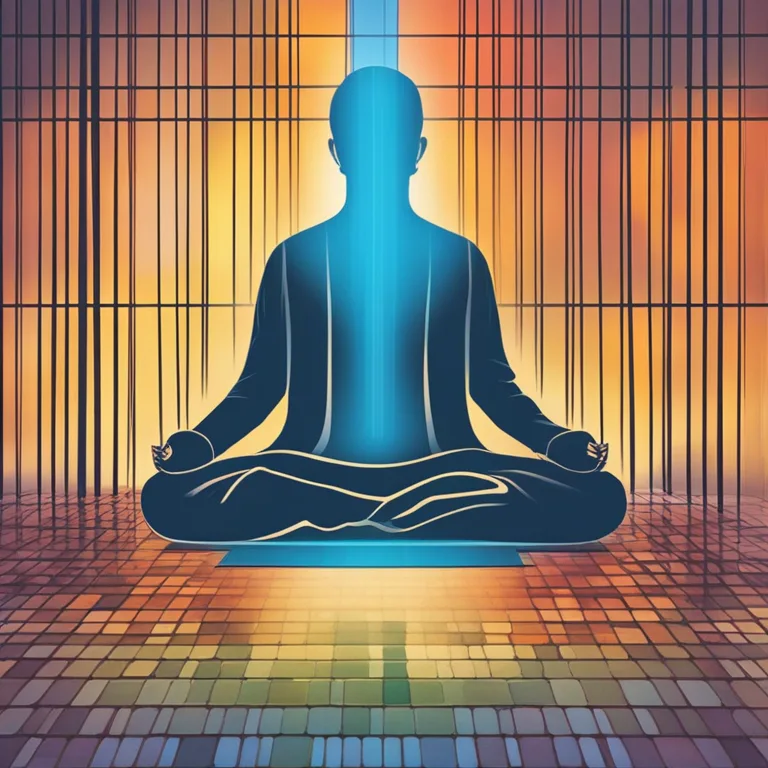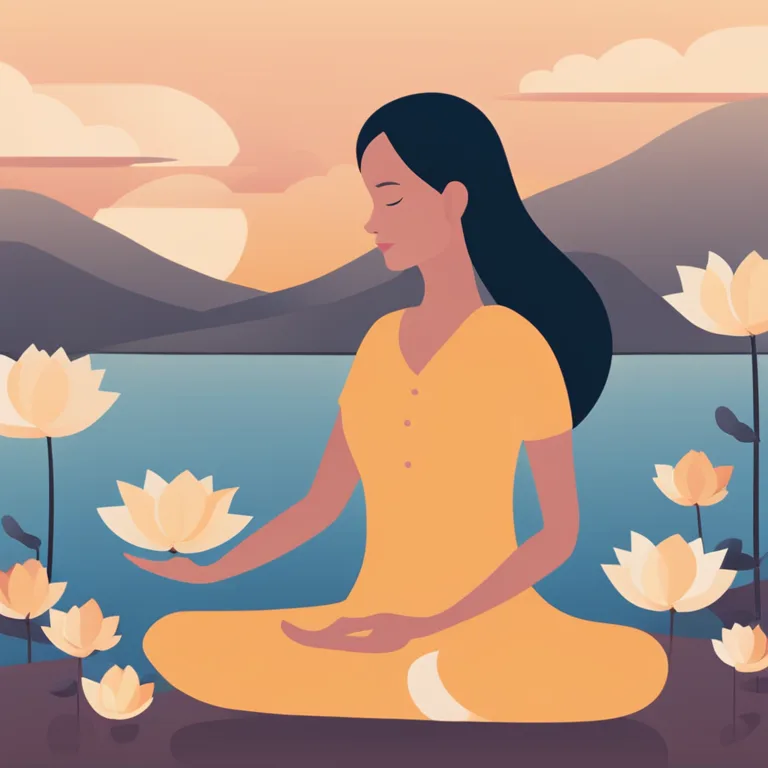
Meditation Techniques for Easing Menopause
Soothe the transition through menopause with effective meditation practices tailored for holistic well-being.
article by Hina Kurosawa
Introduction to Menopause and Meditation
Menopause is a natural phase in a woman's life, characterized by the end of monthly menstruation and fertility. This transitional period can manifest through various physical and emotional symptoms, such as hot flashes, sleep disruptions, and mood swings. Meditation has been recognized as a beneficial practice for managing menopause symptoms, promoting relaxation, and enhancing emotional well-being. In this article, we will delve into several meditation techniques designed to help mitigate the effects of menopause.

Mindfulness Meditation for Awareness
Mindfulness meditation encourages a heightened state of awareness and presence in the moment. By concentrating on the breath and observing thoughts without judgment, women can cultivate a sense of calm amid the hormonal changes of menopause. Regular practice helps reduce stress and anxiety, which often peak during this period. It also improves focus and emotional regulation, allowing for better management of menopause's unpredictability.

Guided Visualization for Relaxation
This technique involves immersing oneself in a mental image of a serene and healing environment. Listening to guided audio or a therapist's voice, one can visualize a calming scenario, such as a peaceful beach or a quiet forest. This form of meditation not only helps lower stress levels but also works to alleviate menopause-related symptoms, like hot flashes, through the power of the mind-body connection.

Body Scan for Physical Tension Release
Body scan meditation focuses on identifying and releasing tension held in different parts of the body. Starting from the toes and moving upward, the practice encourages awareness of bodily sensations. This method is particularly helpful in menopause as it aids in relaxing muscles and easing symptoms like headaches and stiffness, providing a more comfortable and serene state of being.

Yoga Nidra for Deep Rest
Yoga Nidra, also known as yogic sleep, is a deeply restorative practice that brings the body into a state of relaxation akin to sleep while the mind remains awake. It's excellent for menopausal women struggling with sleep disturbances. The practice effectively reduces cortisol levels and promotes a balanced autonomic nervous system response, helping navigate the often erratic sleep patterns during menopause.
Loving-Kindness Meditation for Emotional Balance
The loving-kindness meditation, or Metta Bhavana, is a practice of cultivating compassion both for oneself and others. This form of meditation can be particularly comforting for those experiencing the emotional roller coaster that menopause can bring. Through the repetition of positive affirmations, practitioners can foster feelings of self-compassion, reduce negative emotions, and improve interpersonal relationships.
Tai Chi and Qigong for Harmonizing Energy
Tai Chi and Qigong combine meditative elements with gentle movements, making them an excellent choice for addressing menopausal symptoms. They focus on harmonizing Qi (life energy) and offer a holistic approach to wellbeing, helping to balance hormones and mitigate stress. Additionally, these practices have been shown to improve bone density and stability, which can be of particular concern during menopause.
Consistency and Personalization
Consistent practice is key to reaping the benefits of meditation during menopause. It's crucial to explore different techniques and find one that resonates personally. Some women may find a combination of methods most effective, while others prefer sticking to one. By personalizing the meditation experience, menopausal symptoms can be managed more effectively, leading to improved quality of life.
Published: 1/8/2024
Modified: 1/8/2024
More predictions
Come back here soon to learn more about yourself and your future


Mastering Japa Meditation Practices
Discover the serene art of Japa Meditation and elevate your spiritual journey through chanting and mindfulness.


Finger Meditation Techniques
Discover the power of finger meditation to harmonize your body and mind, enhancing wellness and inner peace.


Mindful Meditation Practices Explained
Discover techniques to enhance your mindfulness through meditation, fostering peace and clarity in your daily life.